Q&A with Julia Glausi
I interviewed the producer of "Heretic," a horror film about two sister missionaries matching wits against a sociopath who's trapped them in his home.
Julia Glausi always knew she wanted to make movies. After graduating from the film program at BYU, she moved to Los Angeles for an internship at an acquisitions company and took an assistant position at Zero Gravity Management. As an executive at Endgame Entertainment, she worked on the Emmy-winning Netflix documentary series Last Chance U and the charming Robert Redford film The Old Man and the Gun. That’s where I met her — she helped me get my first internship in LA!
Julia went on to work as a Media Finance Agent at CAA – the preeminent Hollywood talent agency – before heading to Beck/Woods to produce the A24 hit film Heretic. Latter-day Saints are likely familiar with the movie, which pits two sister missionaries against a sinister psycho played by the magnetic Hugh Grant. I’ve heard plenty of debate over whether a film like Heretic is good or bad for the Church, but I was frankly more intrigued by the intentions of the filmmakers themselves, especially after learning about the numerous LDS connections surrounding the production. So it was my pleasure to sit down with Julia to discuss the conception of the film, its response from the public, and what she would say to church members curious about the movie.
What was the initial inspiration for the film Heretic? And how did the idea and the script come together?
I first heard about the premise certainly over ten years ago, around the time when I first met Scott Beck and Bryan Woods, which was 2013. And at the time I believe they had already written at least the first bit of it, up until the point where the sister missionaries meet Mr. Reed [the Hugh Grant character]. And I can say just from hearing the guys talk about their inspiration and how it came together, that they both were raised religious.
They were both raised Christian out in Iowa. And their introduction to the LDS community was from directing their first professional feature, which they filmed in Utah, actually. It was called Nightlight– it was a found footage film from the point of view of a flashlight that Lionsgate acquired. I didn't work on that production, but I met the guys out in Los Angeles when they were in post production on that movie through some mutual friends. And when I first met them, I think the fact that I had gone to BYU, and at the time was practicing [LDS], of course it came up in conversations. I heard about the premise way back then. And I knew it was something that they were just kind of noodling on and trying to find the right time.
They've talked about diving into a lot of research, not just about the specific entry point of the film, which is the LDS community, but conversations about religion and faith and belief in a much broader sense. It took some time for them to read a lot of different texts and learn enough about all the different things they wanted to talk about.
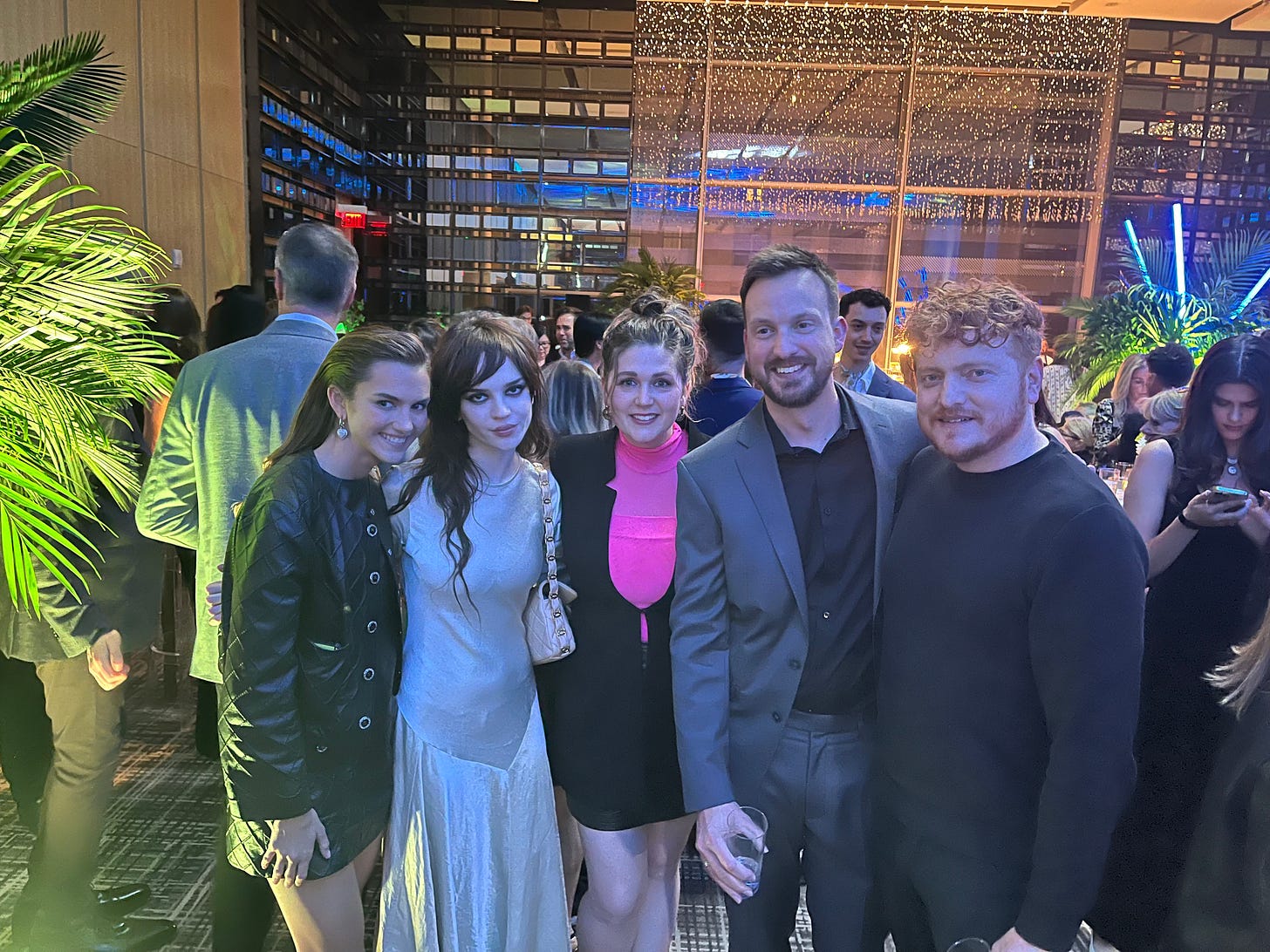
Heretic is a very character-driven film; it’s really the actors who make it all work. And in those two lead roles you have both Chloe East and Sophie Thatcher, who grew up in The Church of Jesus Christ of Latter-Day Saints. Was that a goal for you during casting, and how do you think their backgrounds helped shape the eventual production?
Great question. You know, it was not even something we had in our minds. We just figured there were probably so few actresses with that background. What happened was Sophie Thatcher was the lead of the film the guys wrote and produced, The Boogeyman, so she was on our radar as a fantastic actress. And she was the right age, and she had the right kind of tone that we were looking for in Sister Barnes. And so she was on our radar early. And then we found out very late in the process that she had a connection to the LDS Church and had been raised in the Church.
And then Chloe East, we had seen her in The Fabelmans. And really early on, the guys were like, “Oh, when we start casting for Sister Paxton, we’d love to have her read for the part.” She was just hilarious and so memorable. And so she was someone we had thought of, and my memory was that she read for the part really early on. But in every audition after hers, we just kept saying, “We want to see more performances like Chloe East’s.” She gave such a fantastic, organic performance. And again, it was when we were doing chemistry reads between the girls that our casting director mentioned to us that Chloe also has an LDS background. And you can feel that authenticity! I’m sure you relate to this and picked up on this — there’s almost like an accent on some very subtle level that missionaries have.
A sister missionary accent is a real thing!
Yes, a sister missionary accent! And both of them were able to tap into that organically because they had grown up in the faith and in the Church. And there were a couple moments in rehearsal where one or both of them would have some smart ideas about how something should work. They were able to talk to their friends that were currently serving missions or had just returned from missions; they could consult with them on mannerisms and certain behaviors. It was just wonderful.
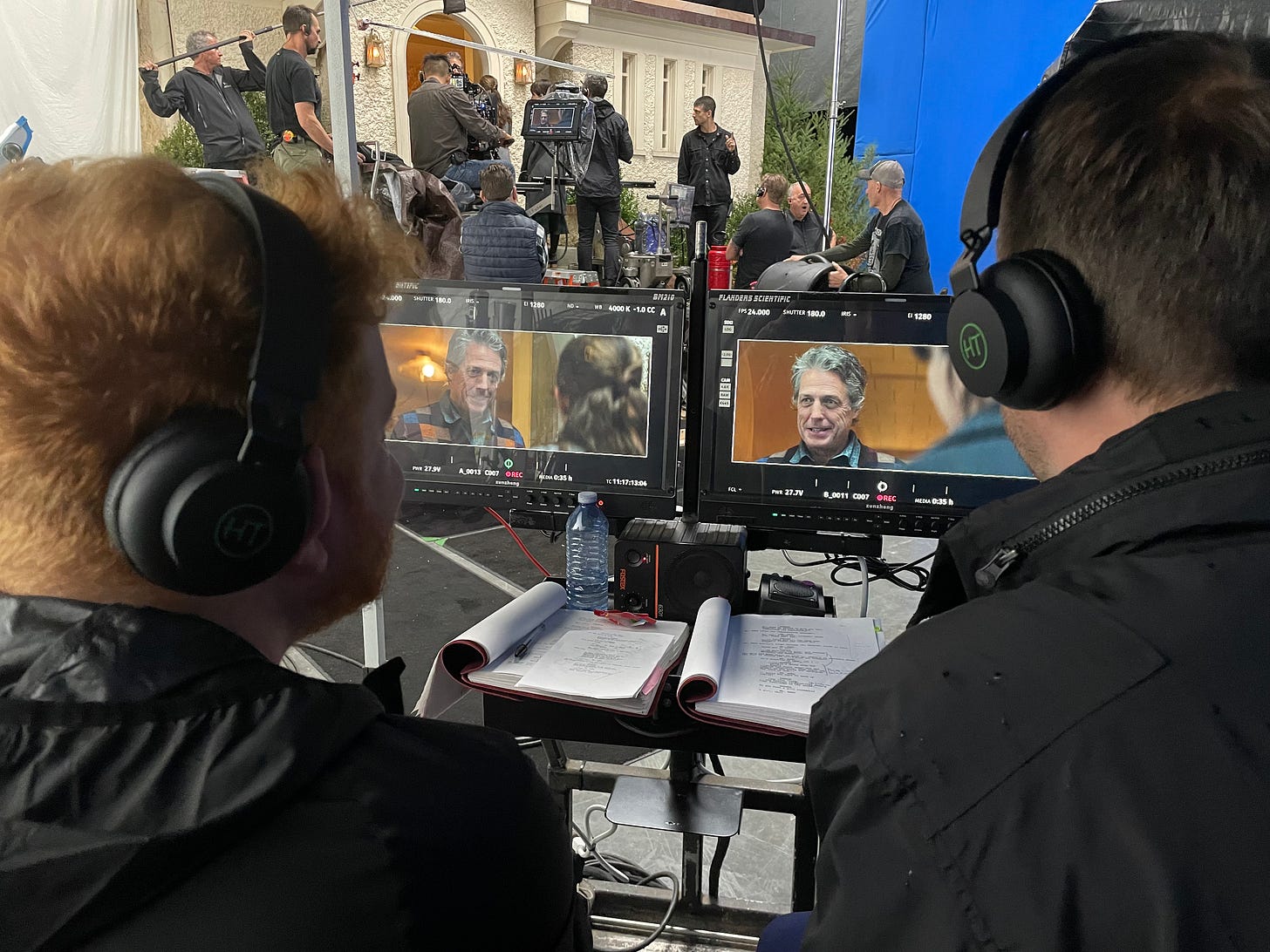
The reactions from Mormons, to say nothing of the institutional Church itself, have been divided. Was that something that you expected or you were worried about? What would you tell a member of the Church, who didn't know anything about Heretic?
The movie is a personal movie. It's personal for Scott and Bryan, and it’s personal for me obviously, having been raised LDS. However, the specificity of the fact that these girls are Mormon missionaries, that's just the entry point. The movie is much more about the broader conversation about faith and belief. And beliefs in general! I mean, there's a whole section about simulation theory.
And so I think folks that haven't seen the film or are maybe hesitant for one reason or another: just know, at the end of the day, these girls are the heroes. Spoiler alert! They’re our protagonists, they’re the heroes, and the film has a very personal entry point into the conversation. It’s talking about things I think we all relate to, no matter if you're religious or have a specific point of view on those things.
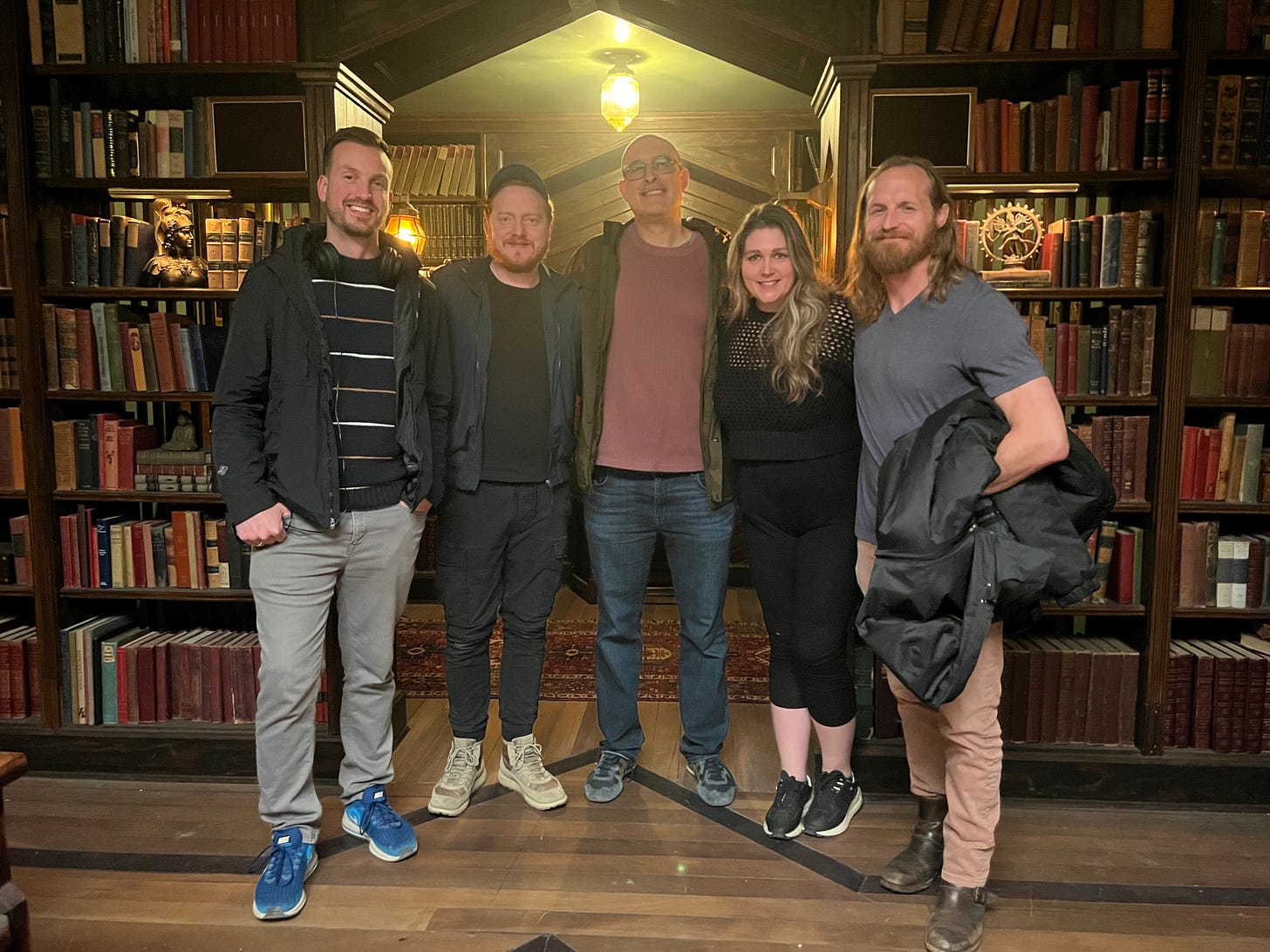
To your other question: the whole exercise of the film was, can ideas be scary? Can we weaponize, can we turn ideas into the monster in the room? Can dialogue evoke fear? And that was a fascinating thing to explore through cinema. And I think that was really exciting to me as a producer. What a fun, bold challenge to try to use these ideas to push the boundaries of cinema.
So what I would say to really anyone is just, if either of those things sound intriguing, check out the film! And then I would love to hear what you think of the movie. I have found the discourse around this film just beautiful and fascinating and wonderful. And that was the intention.
And spoiler alert, but for those who have seen the film, the ending is very intentional. There's a question that the filmmakers are posing, and we want to hear from you. We want to know what you think and what resonated with you and why, and that was part of the intention of making the movie.
I love that. And I definitely picked up on those themes of belief versus disbelief. I think there's the idea, too, of this doctrine of control coming from Mr. Reed versus Sister Paxton, who in the end kind of relinquishes that control and relies on love. And I thought it was really touching and beautiful.
I cried! I sobbed the first time I read the script, and the final film moves me very similarly. And I've heard from others that it has moved them. Some people resonate with that aspect of it, and some people don't. And I love hearing about all the different interpretations and the feelings and the things that you're thinking about during those moments. We were able to have a lot of creative control over the entire process of the film as producers. It opened up the opportunity to be very intentional about what we were making, and make what we wanted to make.
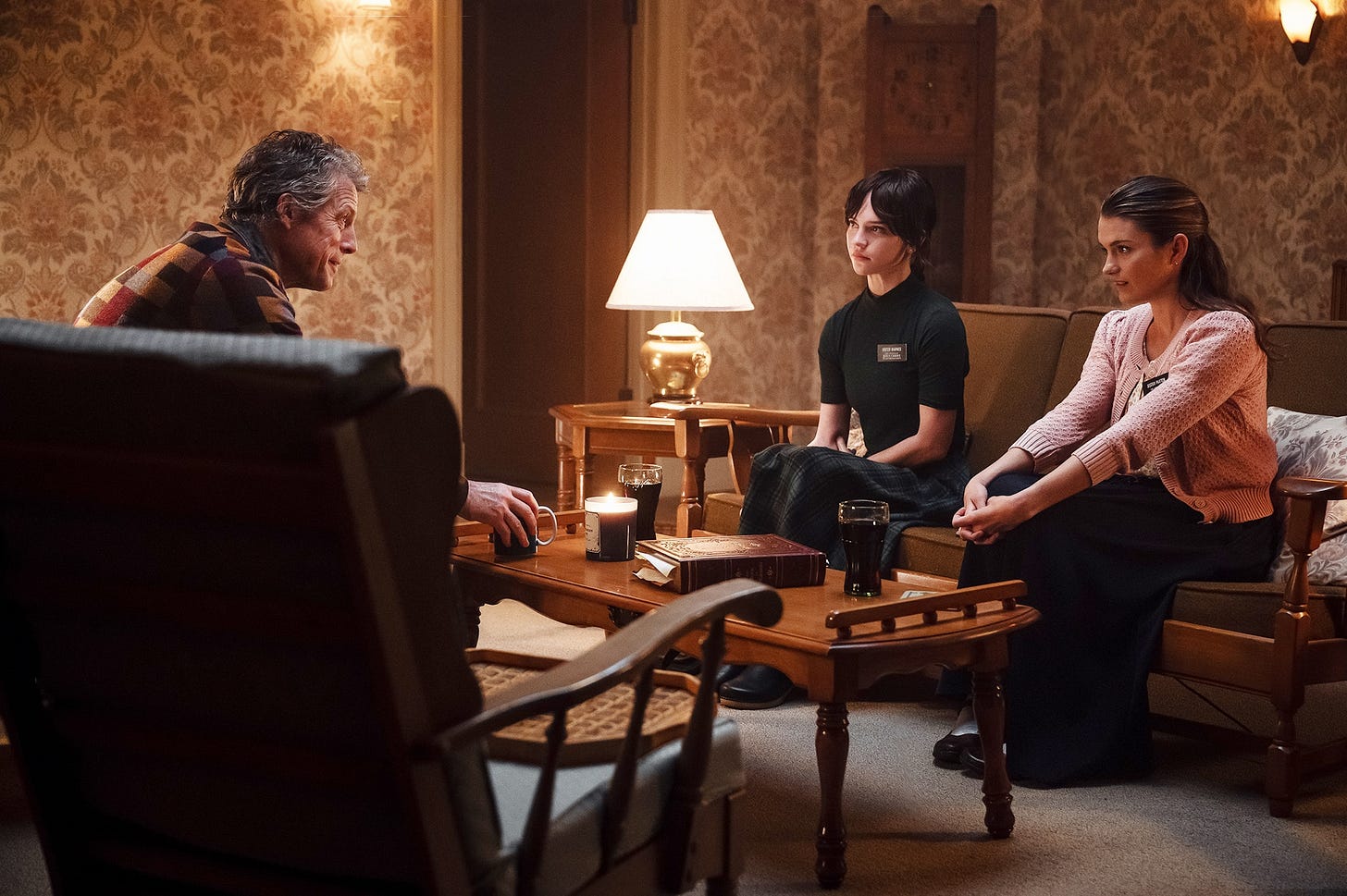
So you are married to writer and director Bryan Woods, and you also produce all his films.
I am, not to bury the lede! [laughs]
I'm curious how you maintain that work / life balance, when you guys are working on all the same things.
Well, it's interesting, I think, because there's three of us at the company. It’s me, it's Scott Beck and Bryan Woods, there is this natural process — you know, all three of us need to be together in a room in order to make decisions and have the conversations [about the films]. Like, we have staff meetings. But Bryan and I have been together as a couple for a long time, and I feel like we'd been each other's ears and sounding boards for such a long time before we ever started working at it formally. I was very confident that joining up formally would allow the horizon to expand.
Instead of me spending my energy on all these other projects for these other producers while working as an agent, I could put my energy behind what they were doing and kind of join up together. I thought it would be a good fit. But we went in very open-minded and very open to the idea of adjusting whatever we needed to in order to make our lives make sense. But so far it's been great, it's been seamless. In my opinion! You'll have to ask them if I’ve been a good colleague! [laughs]
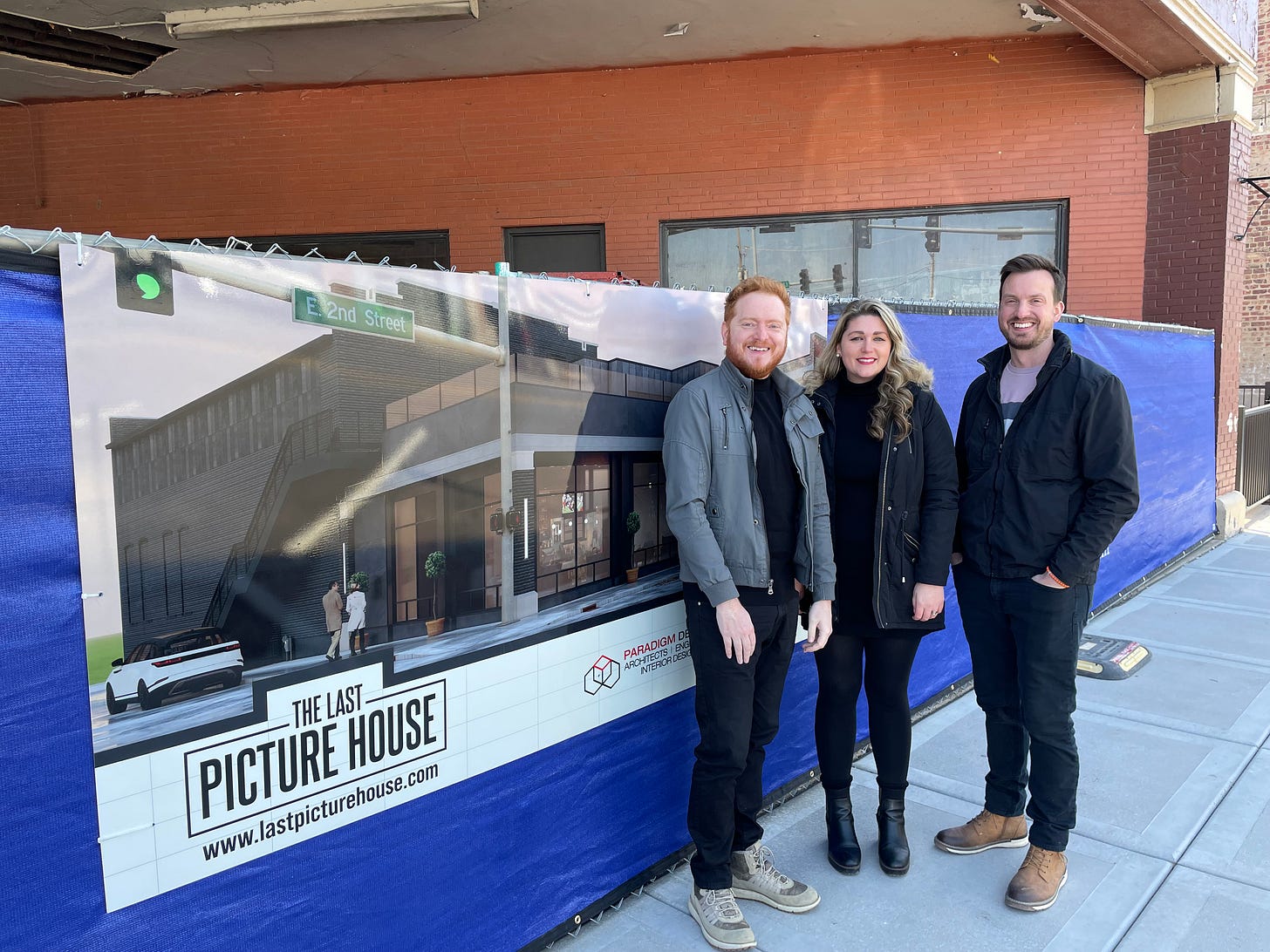
You're not active in the Church today, but do you feel like there are ways that it has informed your work or your perspective on filmmaking or producing?
I love this question. I would hope that it's made me more open minded. It's hard to know what I would be without my upbringing and without my experiences at BYU. I really had a great time in that film program, and I’m so appreciative of everyone. And I think hopefully for those who have watched Heretic, they feel that there is a lot of empathy and a lot of love and a lot of respect for that community.
That is how I feel! I have so many friends and family that are still practicing, and I'm very, very happy for them. It was a very personal decision for me and not an easy one. Ultimately I had to come to terms with what I wanted in my life and what I wanted to be representing, for myself personally, inside and outside the film industry.
But I will say that when I first moved to L.A., I had a little bit of, “Oh, how will I be accepted? Like, I went to BYU…” And now I love talking about it because it really makes me stand apart! I am different. I didn't go to USC! [laughs] I think I have a unique perspective coming from being raised that way.
Thank you for that beautiful answer. Is there any advice that you'd give to an aspiring LDS filmmaker?
I think just keep making stuff. And I don't think there's any rush to move to L.A. or New York, especially these days. I think a silver lining from the time we spent during the pandemic was Zoom, and the advancement of technology to where you can be anywhere and doing your thing, and you can just Zoom in for things. And so that means, go where the resources are. Like, if you have friends and family who can support your dreams and your vision where you are, you gotta keep making stuff. It's always going to come back to your work and your craft. And so wherever you can be doing your best work is where you need to be.

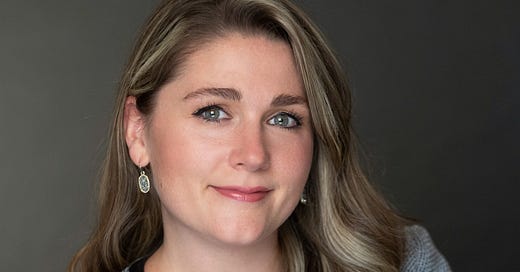




Very cool interview! Julia seems awesome - I absolutely agree that the film seems to be much more about the broader conversation about faith and belief and Mormonism is simply the vehicle chosen to explore that conversation.
Excited to check out some of her other projects, past and future!
Super interesting! Great questions Isaac. Love to hear the backstory on films: the genesis of the idea and the thought that goes into the production —especially the casting. You were able to pull out some great nuggets. I look forward to seeing this!